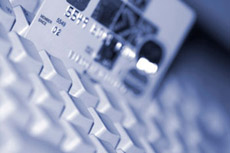Reasons for Credit Repair
Credit repair refers to the process of improving one’s score. There are two ways to go about it. One is to check your report for errors and mistakes and ask the credit agencies to fix them. The second type involves improving one’s budgeting and money management skills and addressing the concerns of financial institutions.
Reasons to Fix Your Report
Poor credit can limit your access to loans, including mortgages, auto and student loans, and revolving debt. Even if you are approved for a loan, you will be offered a high interest rate because you are a risky borrower for banks. In addition, it may be more difficult to get approved for an apartment. Before you sign a lease, the landlord will check your report. Utility companies such as cable, phone, and electricity companies will check your report as well. Persons with a poor credit score are often asked for a security deposit. Cell companies will also make a credit check and may deny your application if you have bad credit. Your only option is to use a prepaid phone. Poor credit will also increase your insurance premiums because it is often associated with higher claims. Finally, some companies, especially in the finance sector, may turn you down because you have poor credit, excessive debt, outstanding balances, or have filed a consumer proposal or bankruptcy.

Knowing Your Rights
The first step to fixing your report is to learn what you are entitled to by law. Borrowers can request a free credit report in case an employer, insurance company, or financial institution denies their application. In addition, you can receive a report free-of-charge if you are victim of identity theft or fraud, you are on welfare, or you are unemployed and actively looking for a job. Check your report for mistakes and omissions and if you find outdated items, errors, or incorrect information, you can dispute them. You can file a dispute free of charge, and the reporting agencies should correct the incomplete or inaccurate details. The next step is to write a letter to the credit bureau which explains the reasons why you dispute information on your credit report. You should list the items that you want to dispute, i.e. judgment or card account, and ask the agency to correct the information. Enclose copies of relevant documents such as bills and payment records to support your claim. The credit bureau should investigate the matter and report the results within a period of 30 days.
Some people use the services of credit repair companies, which must explain the costs and your legal rights. You should ask how long it takes before you get results. If you are not satisfied with their services, you can file a lawsuit or seek damages.
Steps to Improve Your Credit
Dealing with financial problems is another form of credit repair. There are certain things to do to improve your score, and one is to apply for a prepaid card. Timely payments will have a positive impact on your score. The next step is to apply for a small consumer loan. Borrowers who show that they are responsible with installment and revolving debt see quick improvement in their credit score. There are different types of consumer loans, including student and auto loans. Paying your balance in full and paying down your revolving accounts has a positive impact on your score. Make small purchases on your cards so that you can pay the balance in full. Make sure you don’t exceed your limit because this will affect your score. Consumer proposals, bankruptcy, and debt settlement also have a negative effect on one’s credit standing. The same goes for collections, charge-offs, and missed or late payments.
Related Articles
What to Expect if You Have Delinquent Debts
Debt becomes delinquent when a borrower is unable to make timely payments. When a payment is past due, lenders send letters and emails and call borrowers. Some banks also inform the reporting bureaus. Within a 6-month period, your financial institution will attempt to collect debt in different ways...
Credit Score and Factors Used to Determine It
A credit score indicates the creditworthiness of a person and is based on a number of factors. It considers both negative and positive information, and the factors taken into account have different weight. These are:
• Types of loans/revolving debt used (10 percent)
• New loans (10...
Borrowers and How They Manage Credit
The term borrower refers to any company, corporation, entity, and individual who uses services, goods, materials, or money on credit. Borrowers pay interest on loans and credit card balances. Types of BorrowersAccording to psychologists, there are different types of borrowers – winners, wanters,...
